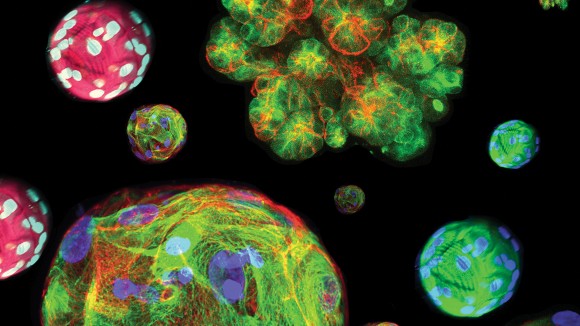For queries and comments about the collection please contact the co-ordinating editors, Christine Weber (Nature Cell Biology) and Katharine Barnes (Nature Protocols).
The following editors have contributed to this collection and/or have an interest in publishing articles in this research area:
Nature
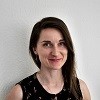 Véronique Gebala <Veronique.Gebala@nature.com>
Véronique Gebala <Veronique.Gebala@nature.com>
Véronique is a Senior Editor at Nature, where she handles manuscripts in stem cell and developmental biology. After undergraduate studies at the École Normale Supérieure de Cachan and Université Paris Sud, Véronique moved to the UK where she earned a PhD from University College London. She carried out her doctoral work at the Cancer Research UK London Research Institute and the Max Delbrück Centre for Molecular Medicine (Berlin, Germany), studying mechanisms of lumen formation during vascular development. In 2017, she joined Nature Communications as an Associate Editor, handling manuscripts in translational and biomedical research, primarily in the areas of vascular, blood and kidney disease. She moved to Nature in October 2019.
Nature Biotechnology
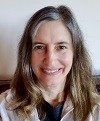 Kathryn Aschheim <k.aschheim@us.nature.com>
Kathryn Aschheim <k.aschheim@us.nature.com>
Kathy studied Molecular Biophysics and Biochemistry at Yale University in the lab of Thomas Steitz. Her areas of responsibility at Nature Biotechnology include regenerative medicine, stem cells, tissue engineering and gene therapy.
Nature Biomedical Engineering
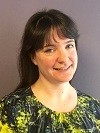 Michelle Korda <michelle.korda@nature.com>
Michelle Korda <michelle.korda@nature.com>
Michelle managed advanced therapy clinical trials at University College London (UCL), and most recently ran a stratified medicine consortium and clinical trial for the treatment of rheumatoid arthritis at Queen Mary University of London. Her expertise is in advanced-therapy clinical trials and in in vivo and in vitro models for bone-defect healing. As a result of using these models to investigate the use of biomaterials and synthetic bone-graft substitutes, she became passionate about materials, particularly in relation to medical devices and tissue engineering. Michelle obtained a PhD in biomedical engineering from UCL in 2007, after investigating the ability of stem cells to regenerate bone around revision hip implants. Michelle joined Nature Biomedical Engineering in May 2016.
Nature Cell Biology
 Christine Weber <christine.weber@nature.com>
Christine Weber <christine.weber@nature.com>
Christine is the stem cell and development editor at Nature Cell Biology. She obtained her PhD in 2014 from the University of Cambridge, UK, where she worked in Fiona Watt's lab on skin stem cells and tumorigenesis. Before joining Nature Cell Biology in 2016, she worked as a locum associate editor at Nature Reviews Gastroenterology & Hepatology. Christine is based in London.
Nature Communications
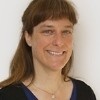 Ann Le Good <Ann.LeGood@nature.com>
Ann Le Good <Ann.LeGood@nature.com>
Ann is a cell/developmental biologist with a PhD on atypical PKCs and postdoctoral research studying the role of Nodal in early mouse development at the Swiss Institute for Experimental Cancer Research. At Nature Communications, Ann handles papers on development, regeneration, bioengineering and embryonic stem cells.
 Robert Stephenson <Robert.Stephenson@nature.com>
Robert Stephenson <Robert.Stephenson@nature.com>
Robert studied the role of morphogenesis in the development of the first three cell lineages in preimplantation mouse embryos for his PhD. For his postdoctoral work he worked in Hitoshi Niwa’s lab, studying the transcription factor interaction network stabilizing pluripotency in mouse embryonic stem cells. At Nature Communications, Robert handles manuscripts exploring the basic biology, as well as clinical and practical applications of stem cells.
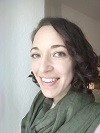 Maria-Teresa Piccoli <naturecommunications@nature.com>
Maria-Teresa Piccoli <naturecommunications@nature.com>
Maria-Teresa Piccoli obtained her Master’s degree in Medical Biotechnology from the University of L’Aquila, Italy, and completed her doctoral studies in Germany at the Hannover Medical School, where she investigated the role of long noncoding RNAs in cardiac diseases. Maria-Teresa joined the editorial team of Nature Communications in August 2017 and primarily handles manuscripts in the fields of cardiac and lung research, as well as manuscripts dealing with medical imaging.
Nature Genetics
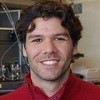 Tiago Faial <Tiago.Faial@us.nature.com>
Tiago Faial <Tiago.Faial@us.nature.com>
Tiago obtained his PhD from the Stem Cell and Developmental Biology program at the University of Cambridge under the supervision of Jim Smith and Roger Pedersen, where he studied gene regulatory networks and signaling cascades that underpin mesoderm differentiation. For his postdoctoral work, Tiago joined Joanna Wysocka's laboratory at Stanford University where he studied the dynamics of epigenetic landscapes in pluripotency. He joined the Nature Genetics team in 2015.
Nature Methods
 Nina Vogt <methods@us.nature.com>
Nina Vogt <methods@us.nature.com>
Nina Vogt conducted her PhD research at the Max Planck Institute for Developmental Biology in Tübingen, where she studied mRNA localization in Drosophila under the supervision of Christiane Nüsslein-Volhard. She then joined the lab of Claude Desplan at New York University where she worked on color vision in Drosophila. She joined Nature Methods in April 2014 and handles manuscripts describing methods and tools in neuroscience and stem cell biology.
 Madhura Mukhopadhyay <madhura.mukho@us.nature.com>
Madhura Mukhopadhyay <madhura.mukho@us.nature.com>
Madhura Mukhopadhyay studied microbiology as an undergraduate at Mount Carmel College in Bangalore, India, and human biology in a Master’s program at the University of Copenhagen, Denmark. She obtained her Ph.D. from the Pasteur Institute in Paris, where she analyzed CD4+ T cell responses generated by a candidate HIV vaccine. Following her Ph.D., Madhura conducted postdoctoral research at Massachusetts General Hospital and University of Pennsylvania with a strong focus on deconvoluting peripheral CD4+ T cell and follicular helper T cell responses against HPV-related cancers and HIV. Madhura joined Nature Methods in March 2020 where she handles the immunology and stem cell biology content.
Nature Protocols
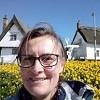 Katharine Barnes <K.Barnes@nature.com>
Katharine Barnes <K.Barnes@nature.com>
Katharine completed her PhD in cancer pharmacology at the Institute of Cancer Research, London. Her postdoctoral research, based in the University of Pittsburgh's Department of Pharmacology, was focused on the phosphatase CDC25 and its potential as a target for anti-cancer drug development. Katharine joined Nature Protocols in January 2006 as Chief Editor and led the editorial team of Nature Protocols until November 2009, when she stepped down from the full-time Chief Editor role to become Managing Editor, working part-time. Before joining Nature Protocols Katharine was Editor of Trends in Pharmacological Sciences. Amongst other areas, she handles cell and tissue culture models for Nature Protocols.
Communications Biology
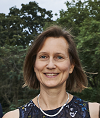 Christina Karlsson Rosenthal <C.Karlsson-Rosenthal@nature.com>
Christina Karlsson Rosenthal <C.Karlsson-Rosenthal@nature.com>
Christina Karlsson Rosenthal received her PhD in Medical Cell Biology from Uppsala University for studies of cellular senescence and carried out postdoctoral work on mitosis at the Gurdon Institute in Cambridge, UK. Christina directed her own research group focused on cell cycle control at the Karolinska Institute in Stockholm before moving back to the UK and turning to publishing. She joined the editorial team of Communications Biology in 2019 after over ten years as an editor at Nature Cell Biology. Christina took on the role of Deputy Editor in January 2020.
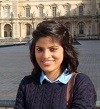 Anam Akhtar <anam.akhtar@nature.com>
Anam Akhtar <anam.akhtar@nature.com>
Anam received her PhD in Biomedical Sciences from Middlesex University, designing targeted liposomal constructs for selective drug delivery to HPV infected cancers. She also has research experience in genetics and the design of polymer and inorganic nanoparticles and their applications. Anam joined the editorial team of Communications Biology in July 2019.
Nature Reviews Genetics
 Linda Koch <L.Koch@nature.com>
Linda Koch <L.Koch@nature.com>
Linda obtained her PhD in Genetics from the University of Cologne, Germany, where she used conditional gene targeting in mice to research the mechanisms of central and peripheral insulin resistance. After a brief postdoc, Linda joined the Nature Reviews department in 2009, first as Associate Editor, then as Senior Editor and Locum Chief Editor of Nature Reviews Endocrinology before moving to Nature Reviews Genetics as Chief Editor in 2014. Twitter: @LinkoNRG
Nature Reviews Materials
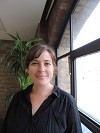 Christine Horejs <christine.horejs@nature.com>
Christine Horejs <christine.horejs@nature.com>
Christine received her MSci and PhD in nanobiotechnology from the University of Natural Resources and Life Sciences, Vienna, Austria, studying protein conformations and self-assembly using both biophysical and theoretical approaches. She then joined the lab of Molly Stevens at Imperial College London, UK, investigating the extracellular matrix and cell–material interactions. In 2015, she moved to Karolinska Institute, Sweden, conducting in vivo studies of anti-fibrotic biomaterials. In September 2017, she joined the Nature Reviews Materials team as an Associate Editor, and since July 2019 she is a Locum Senior editor at Nature Nanotechnology, where she is primarily responsible for nanomedicine and nanobiotechnology. Christine is based in London.
Nature Reviews Molecular Cell Biology
 Kim Baumann <k.baumann@nature.com>
Kim Baumann <k.baumann@nature.com>
Kim Baumann has been Chief Editor of Nature Reviews Molecular Cell Biology since 2016, responsible for the areas of stem cells and developmental biology; cell growth and division; ubiquitin signalling; protein structure and metabolism; and plant cell biology. She carried out her PhD and postdoctoral research at the John Innes Centre in Norwich, UK, in the laboratories of Cathie Martin, Keith Roberts and Desmond Bradley. She studied the cellular mechanisms underlying changes in plant cell shape, and the regulation of flowering. Before moving into science publishing in 2009, she contributed to the setting up of the Sainsbury Laboratory at the University of Cambridge.

